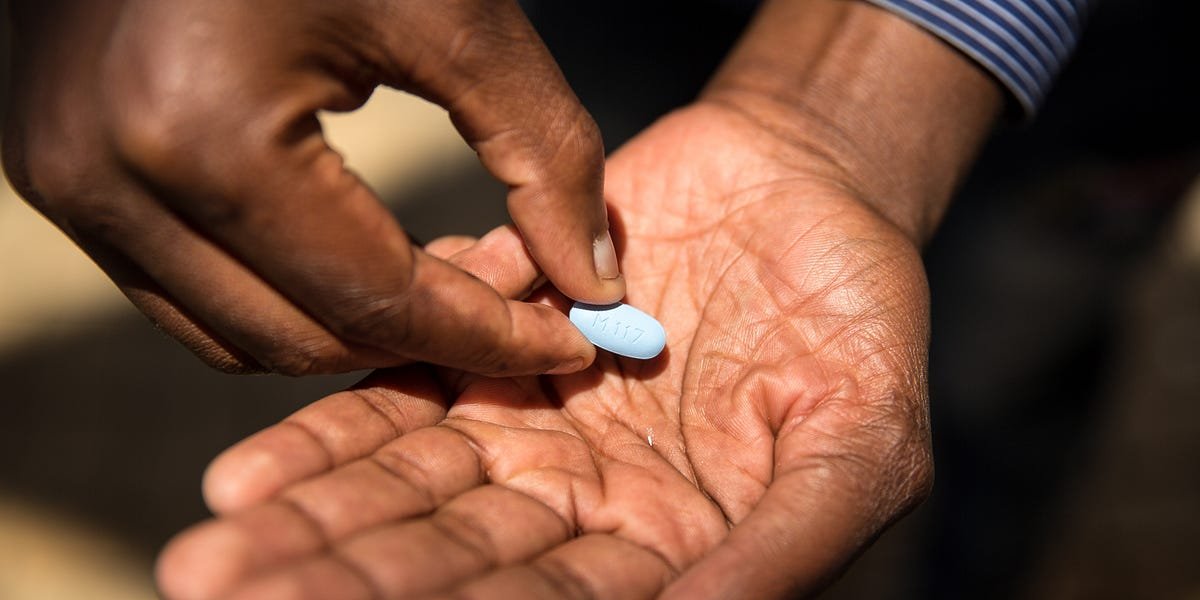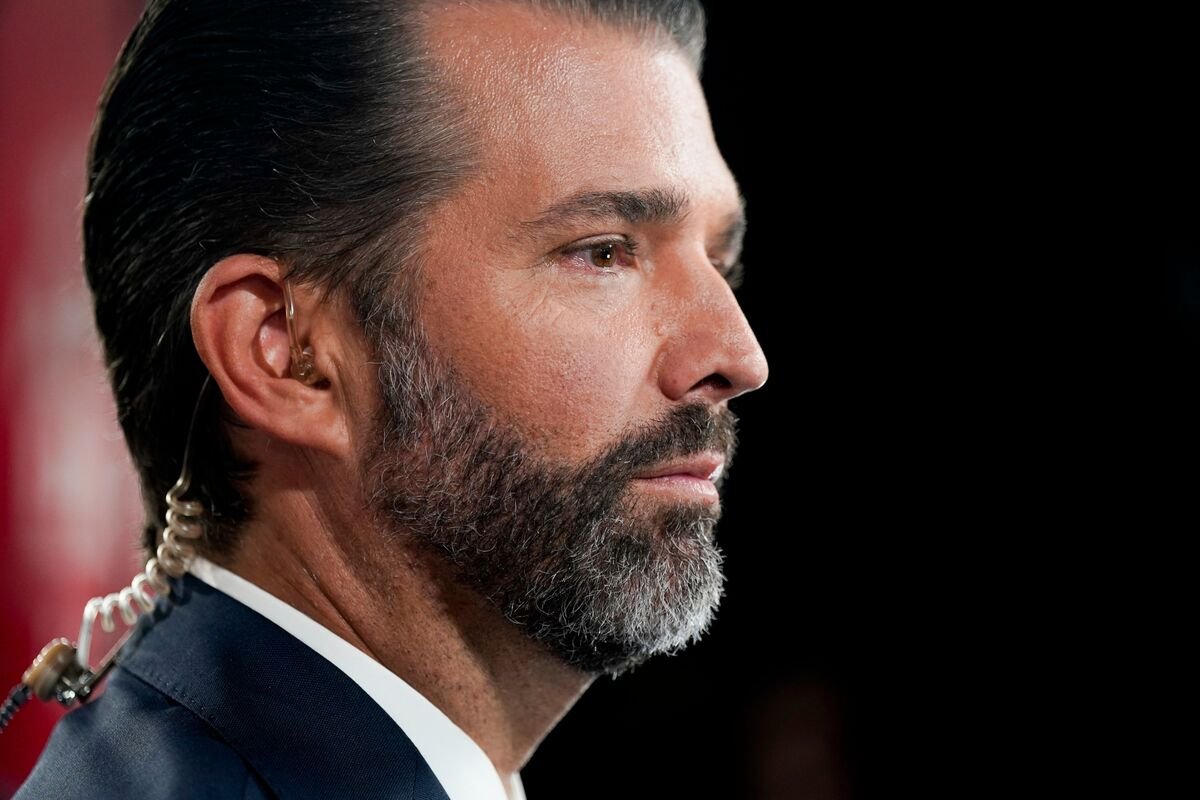THOUSANDS OF SCIENTISTS, PUBLIC HEALTH OFFICIALS, and advocates for HIV treatment gathered in Kigali, Rwanda last week for what could have been—and should have been—a moment of celebration.
The occasion was the biennial meeting of the International AIDS Society. And the would-be cause for celebration was the World Health Organization’s announcement that it was officially endorsing use of a new, twice-a-year injectable form of PrEP, a medication that protects people from contracting HIV even if they are exposed. PrEP, which is the acronym for pre-exposure prophylaxis, is more than 99 percent effective, making it the best medical weapon for stopping the virus’s spread.
That’s no small matter, given that last year an estimated 1.3 million people around the world contracted HIV and an estimated 600,000 died from conditions related to AIDS. PrEP has helped bring those numbers down from where they were a few years ago, but distributing it has been an ongoing struggle, for a variety of reasons including everything from logistical difficulties in the parts of Africa where the epidemic is most severe to social pressures not to take the pills.
The injectable form of PrEP holds out the promise of overcoming those and other barriers, which is why researchers and advocates have been calling it a “game changer” that could “break the back of the epidemic.”
But injectable PrEP comes with its own challenges. Somebody has to buy and distribute the shots, and then somebody has to administer them through clinics and other facilities. Until a few months ago, the global health community had been counting on its usual partner, the United States, to help with these tasks. But now that partner is taking several giant steps back, thanks to Donald Trump.
The Bulwark is committed to helping explain difficult issues in these serious times. Join our growing community of members today:
Since taking office, the Trump administration has dramatically downsized global health assistance by cutting off funds for critical programs and shutting down the U.S. Agency for International Development (USAID), which had managed many of them. The effects were a big topic of discussion in Kigali, where researchers presented new data from several African nations showing that visits to clinics, HIV testing, and the initiation of treatment had all declined significantly.
The numbers were the first concrete evidence of something modelers have been predicting for months: namely, that Trump administration cuts would mean less prevention and care, which will ultimately mean more death. It was also consistent with anecdotal reports that health officials shared in Kigali about clinics closing and programs shuttering: Officials were heartened by all the workers showing up to volunteer, even though they weren’t getting paid, but despairing that someday the volunteers won’t be able to afford to show up anymore.
“I wouldn’t say it was panic, but there were alarm bells going off—it was real and palpable,” Mitchell Warren, executive director of the advocacy group AVAC, told me in a phone interview.
The stories and the anecdotes from Kigali—along with prior journalistic accounts from the likes of New York Times columnist Nick Kristof and former USAID Deputy Director Atul Gawande—are a powerful, sobering corrective to the frothy promises of Trump officials like Secretary of State Marco Rubio, who insisted in recent congressional testimony that “no one had died” because of cuts to global health aid.
They also put into proper perspective another development on the global health front from last week—a bill signed into law by President Trump that offered a faint measure of hope but also reinforced just how bad things have gotten.
Get 30 day free trial
THAT NEWS WAS CONGRESS APPROVING a so-called budget rescission, better understood as a measure pulling back and canceling money it had previously appropriated. The Trump administration had requested the rescission, largely to codify cuts it was already making on its own by simply refusing to spend money.
A bunch of that money had been allocated to foreign aid, which was one of the first big tranches of spending that the Trump administration blocked after taking office in January. But in approving the rescission, the Republicans in the Senate pushed back on one particular element: They insisted on restoring about $400 million in funding cuts the president had proposed for PEPFAR, the anti-HIV program President George W. Bush launched in 2003 that has saved literally tens of millions of lives.
It was a rare show of mettle by congressional Republicans, who have passed up so many other opportunities to confront the Trump administration. Perhaps it was legislative muscle memory, from a time when PEPFAR enjoyed strong, bipartisan support. Or perhaps it was pressure from Christian organizations, which were among the earliest champions of PEPFAR and have fought for it ever since.
The news buoyed spirits in Kigali, attendees told me, because it was a sign that the United States still had some commitment to the cause of fighting HIV—and maybe to global health more generally, since Senate Republicans also included language to “protect” programs related to malaria, tuberculosis, and malnutrition.
But with the dash of optimism came a dollop of resignation—because the package still cuts some global health money, and because restoring the PEPFAR appropriation is not the same thing as making sure the administration will spend it.
Organizations working with PEPFAR have been learning this the hard way ever since late January, when the Trump administration first blocked all foreign assistance. The administration then issued waivers for certain vital, lifesaving programs, PEPFAR among them. But even with the waivers in place, organizations working with PEPFAR struggled to get their money.
Please send this newsletter to any friends or family members disturbed by Trump’s attacks on U.S. foreign aid:
Share
One reason was that the administration didn’t make clear what qualified as lifesaving, leaving organizations unsure of what they could and couldn’t still do. Another was that the administration was in the process of dismantling USAID, which had primary responsibility for managing PEPFAR.
The State Department ended up absorbing those responsibilities, as part of what Rubio billed as a reorganization to improve efficiency. But the transition was abrupt and hardly seamless, with a depleted staff at State struggling to handle its new portfolio.
“A lot of the staff that are responsible for the day-to-day management and correspondence with the NGOs [nongovernmental organizations] were the staff that all got fired,” Will Lewis, a policy specialist at the Christian humanitarian organization World Relief told me. “A lot of the NGOs have lost their main point of contact, and people are still trying to figure out who they should be talking to.”
Even technology became an issue, according to Elisha Dunn-Georgiou, president of the Global Health Council, because the State Department payment system didn’t work the same way USAID’s had.
“The waivers were a great kind of political statement,” Dunn-Georgiou told me, “but had nothing to do with getting paid.”
There has also been a shift in focus at PEPFAR, with less emphasis on HIV prevention generally and a specific prohibition on support for PrEP except for pregnant and breastfeeding women. In other words, the administration is limiting whatever prevention efforts go forward to “vertical” transmission (from mother to fetus or child) but not “horizontal” (adult to adult).
Restricting prevention efforts in that way will inevitably leave out large swaths of the population who are HIV-positive or at the highest risk of becoming HIV-positive, including gay men and the transgender population. And that, Gawande told me in a phone interview, is going to “set back efforts enormously.”
“We were on a path with new, long-term injectable medications to work towards the elimination of HIV in a matter of five to ten years,” said Gawande, who is also a surgeon and longtime writer for the New Yorker. “There are indications that some long-term injectables will still be provided, but it is not going to be anywhere near the kind of campaign and wholesale rollout that was planned before.”
“It’s hope canceled,” Gawande said.
Get 30 day free trial
PEPFAR IS STILL IN BETTER SHAPE THAN MOST other foreign aid programs, which have suffered even larger reductions in funding and scope, if they’ve survived at all.
In defending the attack on foreign assistance over the past six months, the administration has made a variety of arguments: that existing programs were full of waste and fraud, that the agencies and organizations in charge were using aid to advance a left-wing agenda, and that support for projects like HIV prevention encouraged sexual promiscuity.
The evidence the administration cited as proof of these charges was frequently exaggerated or flat-out wrong, like their oft-stated claim that 88 percent of USAID spending didn’t go to beneficiaries. In reality, most of that 88 percent went to intermediary organizations like Catholic Relief Services, which then spent most of it on supplies and services.
And while pretty much everybody in the global health community understood the Trump administration would want to make changes in foreign assistance—as every American administration has—they assumed that it would do so methodically and carefully, in a way that would avoid the kind of disruptions that have now taken place, effectively destroying a public health infrastructure that took decades to create.
Share
“This could have been done in a more thoughtful, planned way, scaling things down gradually and changing them,” Jennifer Kates, director of global health and HIV policy at the research organization KFF, told me. “Instead it was done in a really abrupt way, so now we’re left with what pieces get picked up and what happens to the remaining work—and it’s not clear there’s a plan for that.”
Global health has always struggled for funding. And Kates said she thought the restoration of PEPFAR funds in the rescission package suggested there might yet be chances to keep some of the most promising efforts going.
“All the other damage that’s been done is still there, and this doesn’t necessarily rectify it,” Kates said. “But I think it perhaps suggests that we could be heading into a period now where we can say, okay, what happens—what’s the plan for saving as many lives as possible, while we wind down this program in a more responsible way.”
Warren told me he detected precisely that sort of resilience in Kigali—a determination from committed governments and organizations to find a way to cobble together what they could in ways that would mitigate the worst of the damage.
Even so, Warren said, it was hard not to think about the opportunity slipping away. It was also impossible not to recognize that it was happening at the hands of Trump, who in his first presidency had set a goal of eradicating HIV.
“His own ambition from 2019 is being undercut by his actions in 2025,” Warren said. “It’s the cruelest of ironies.”
Leave a comment
Nothing WE about this. This is on trump, republicans, and ANYONE who voted for these monsters.
I appreciate all of the work and knowledge that goes into your columns.
No posts
Ready for more?
We Are Fumbling the Fight Against AIDS – The Bulwark



